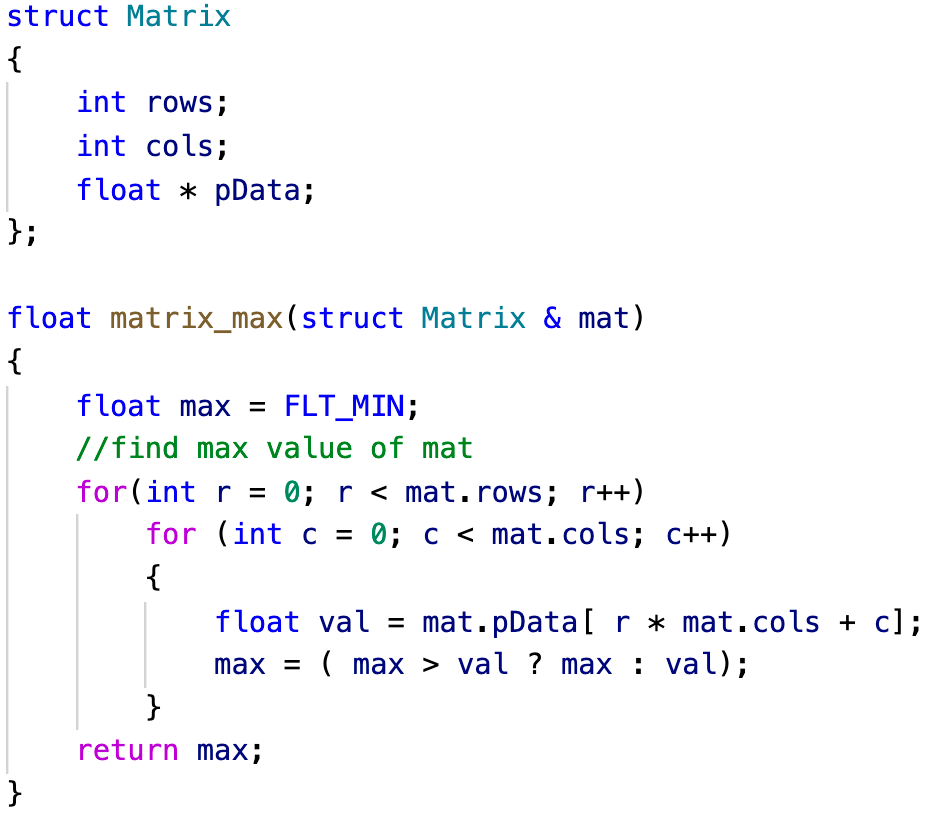Referencesare in C++, not in C.- 引用的概念只在C++中
- A reference is an alias to an already-existing variable/object.
int main() { int num = 0; int &num_ref = num; // &放在类型的后面 代表后面定义的变量是引用,而不是取地址 cout << “num = “ << num << endl;
num_ref = 10;cout << "num = " << num << endl;return 0;
} // num = 0 // num = 10
通过上例子,无论是num还是num_ref,它们两个对应同样的数据,
- A reference to an object
- 对象的引用
```cpp
struct Matrix
{
int rows;
int cols;
float * pData;
};
Matrix matA = {3,4};
matA.pData = new float[matA.rows * matA.cols]{};
Matrix & matA_ref = matA; // matA_ref 是matA的引用
Matrix * pMatA = &matA; // pMatA指向的是matA的首地址
:::warning A reference must be initialized after its declaration. :::
int & num_ref; // error
Matrix & mat_ref; // error
Reference VS Pointer: References are much safer。
对于指针,需要时刻小心是否发生越界,而引用在被声明出来,必须要初始化,一定会指向一个具体的对象。
- Function parameters with a huge structure
- If the huge struct is passed as a function parameter
- 提到上一节的问题,如果需要传递一个超大的结构体给函数,怎么办 ```cpp struct PersonInfo { char firstname[256]; char middlename[256]; char lastname[256]; char address[256]; char nationalID[16]; // and more };
char * fullname(struct PersonInfo pi) { // … }
上述代码还是按照6.2节,按值进行传参,需要把该结构体拷贝给函数,The data will be copied. Not a good choice!
- One solution is to use a **pointer**
```cpp
struct PersonInfo
{
char firstname[256];
char middlename[256];
char lastname[256];
char address[256];
char nationalID[16];
// and more
};
char * fullname(struct PersonInfo * ppi)
{
// 如果使用了指针进行传参,在对该数据进行操作之前,
// 必须要进行一系列严谨的对指针进行检查
if (ppi == NULL)
{
cerr << "Invalid pointer" << endl;
return NULL;
}
// ...
}
- References as function parameters
- No data copying in the reference version; Better efficiency
- The modification to a reference will affect the original object
|
 |
|  |
| —- | —- |
|
| —- | —- |
:::warning 如果传递给参数的引用数据被修改,那么函数外部的数据也会被修改;因为他们指向了同一地址 ::: To avoid the data is modified by mistakes, 可以在struct前加上const,就不会改变引用数据的值了。
float matrix_max(const struct Matrix & mat)
{
float max = FLT_MIN;
// ...
return max;
}

